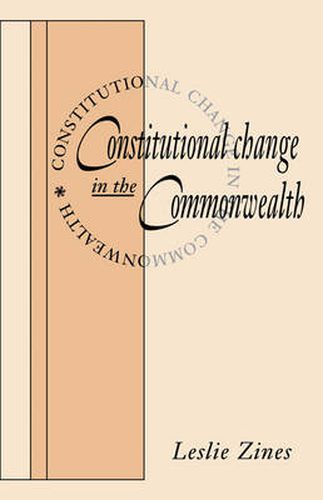Readings Newsletter
Become a Readings Member to make your shopping experience even easier.
Sign in or sign up for free!
You’re not far away from qualifying for FREE standard shipping within Australia
You’ve qualified for FREE standard shipping within Australia
The cart is loading…






This book is a contribution to comparative constitutional law and deals with important changes in the United Kingdom, Canada, Australia and New Zealand, the original members of the present Commonwealth of Nations. It is based on lectures delivered at the University of Cambridge. The first lecture discusses the development in recent years of the constitutional autonomy of Canada, Australia and New Zealand, and its effect on the constitutions of those countries and on the concept of the ‘crown’. The second lecture is concerned with methods to entrench, constitutionally, individual and democratic rights. The final lecture contrasts judicial attitudes to the interpretation of the constitutions of Canada and Australia. The conclusion is reached that although the EEC is not a federation, there is a structural similarity between the distribution of governmental power within the Community and its members, and the federal issues that arise in Canada, Australia and other federations.
$9.00 standard shipping within Australia
FREE standard shipping within Australia for orders over $100.00
Express & International shipping calculated at checkout
This book is a contribution to comparative constitutional law and deals with important changes in the United Kingdom, Canada, Australia and New Zealand, the original members of the present Commonwealth of Nations. It is based on lectures delivered at the University of Cambridge. The first lecture discusses the development in recent years of the constitutional autonomy of Canada, Australia and New Zealand, and its effect on the constitutions of those countries and on the concept of the ‘crown’. The second lecture is concerned with methods to entrench, constitutionally, individual and democratic rights. The final lecture contrasts judicial attitudes to the interpretation of the constitutions of Canada and Australia. The conclusion is reached that although the EEC is not a federation, there is a structural similarity between the distribution of governmental power within the Community and its members, and the federal issues that arise in Canada, Australia and other federations.